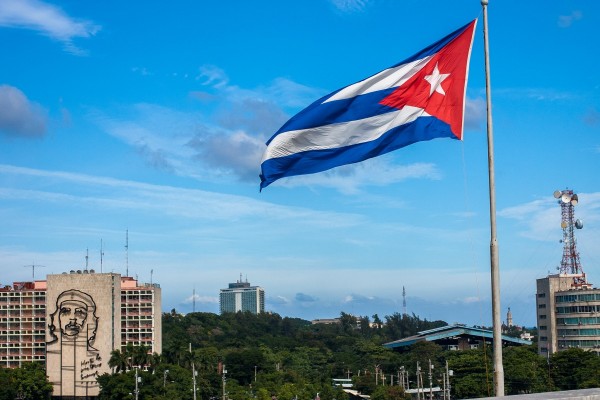Five decades of inanity and still going
In 1991, The Soviet Union disappeared. Washington changed its anti-Cuba rhetoric from Cold War to human rights. But one issue remains: a U.S. economic colony that broke loose in 1959 still refuses to surrender.
The punish Cuba policy, now 53, has grown gray and became downright inane in the 1980s when Reagan transferred day-to-day Cuba policy to right-wing Cuban-Americans in Miami except, of course, when periodic crises erupted. But underneath this apparent idiocy lies a more pernicious absurdity.
In May, for example, the State Department rejected visa requests from eleven Cuban scholars, also advocates for improved relations between Cuba and the United States. Scores of other Cubans obtained their visas to attend the Latin American Studies Association meeting in San Francisco.
Simultaneously, Mariela Castro, director of Cuba’s Sex Education Institute, also Raul Castro¹s daughter, got her visa, much to the delight of leaders of San Francisco and New York’s gay, lesbian, bi-sexual and transgender communities, which she visited. They admire her heroic work on LBGT rights.
This strange mixed message produced rumors that the denial of visas showed a deal between hack Cuban-American U.S. Senators and a frustrated and mediocre State Department. Marco Rubio (R-FL) and Bob Menendez (D-NJ) had placed a hold on Roberta Jacobson¹s appointment as Assistant Secretary of State for Inter-American Affairs. By denying some visas, and tightening travel to Cuba rules, State assuaged (a little) the two Cuban American solons. Do White House strategists hope Mariela’s visit will strengthen gay support (money and votes) for Obama?
Meanwhile, the Washington-Havana adversaries have not developed even a petty “mend relations” agenda. Indeed, State has rejected or remained silent on Cuba’ proposals on migration but only for two years. The White House has no time for Cuba as it pursues the President’s re-election.
In May, U.S.-Cuba policy oozed its way into CNN’s The Situation Room. Wolf Blitzer interviewed Alan Gross (U.S. prisoner in Cuba), and Josefina Vidal (U.S. desk in Cuba’s Foreign Ministry). That week, State Department Press Secretary Victoria Nuland assured the press and Secretary of State Hilary Clinton insisted Alan was innocent despite Judith Gross’s (wife) statement: “We know now that [Alan] did break Cuban law.”
Hilary also ignored Desmond Butler’s Associated Press dispatch on Gross’s misdeeds. In Cuba, Gross played his part in a U.S. government-backed regime-change policy. Gross got paid by Development Alternatives Incorporated, which contracted with USAID.
Like Clinton and Nuland, Blitzer also reflected his ignorance or denial of Butler¹s account of Gross’s 2009 “trip reports” from Cuba. Butler describes from Gross’s own written account to his company, how Alan smuggled illicit material and set up impenetrable communications networks in Cuba.
Blitzer also re-introduced the Cuban 5 theme. In the 1990s, Cuba sent intelligence agents to Miami to infiltrate exile groups preparing violence against Cuban tourist sites. Cuba recycled to the FBI the agents’ findings about explosive and arms caches in the area. In 1998, after using the agents’ information to seize caches of explosives in Miami, the FBI arrested the Cuban agents its own informants. In a 2001 trial an intimidated Miami jury declared them guilty of major crimes and a judge condemned them to draconian sentences.
Could President Obama release them after the election, of course—in return for Alan Gross? “No way,” said State. Gross is innocent. The 5 were convicted of serious crimes. This kind of petty mendaciousness has reached embarrassing levels. Gross admitted he had violated Cuban laws and the AP story confirms his guilt.
Then, another strange event occurred. Carlos García-Pérez, director of U.S. government financed Cuban Broadcasting Office (Radio and TV Marti), ³called the archbishop of Havana a lackey who is colluding with an oppressive regime.² (William Booth, Washington Post May 5).
Does President Obama think the Cardinal, who favors a dialogue, is simply a messenger for Cuban President Raul Castro? Or does this inanity spring from deeper inane roots?
Fifty-two years ago, on my first trip to Cuba, I watched social change, happiness emanated from the poor; anger from those who lost wealth, property, privilege, status and prestige. I also witnessed violence when CIA-backed exiles from Miami bombed the island.
For five plus decades the U.S. has embargoed Cuba. The CIA backed an invasion of exiles at the Bay of Pigs in April 1961 and sponsored thousands of armed attacks on the island terrorism.
After half a century plus, Cuba has exported a million plus Cubans to Florida, and they have made changes in that state and in U.S. destiny. In 2000, they helped George W. Bush become U.S. President. Cuba’s counter-revolution had acted to alter U.S, not Cuban destiny.
Although Cuba’s heady revolutionary days have passed, Latin America has followed its independence road.
In March, imperial ignorance and arrogance characterized President Obama’s role at the April 2012 Cartagena Summit of the Americas. Washington continued to refuse to allow Cuba to participate in future hemispheric discussions. Even the U.S. puppet government of Honduras voted with 30 other states to include Cuba for future meetings. Only Canada voted the U.S. line. Fifty-three years of accumulated bile.
Obama’s answer to his critics here and in Cuba? “They know we can do better.”








